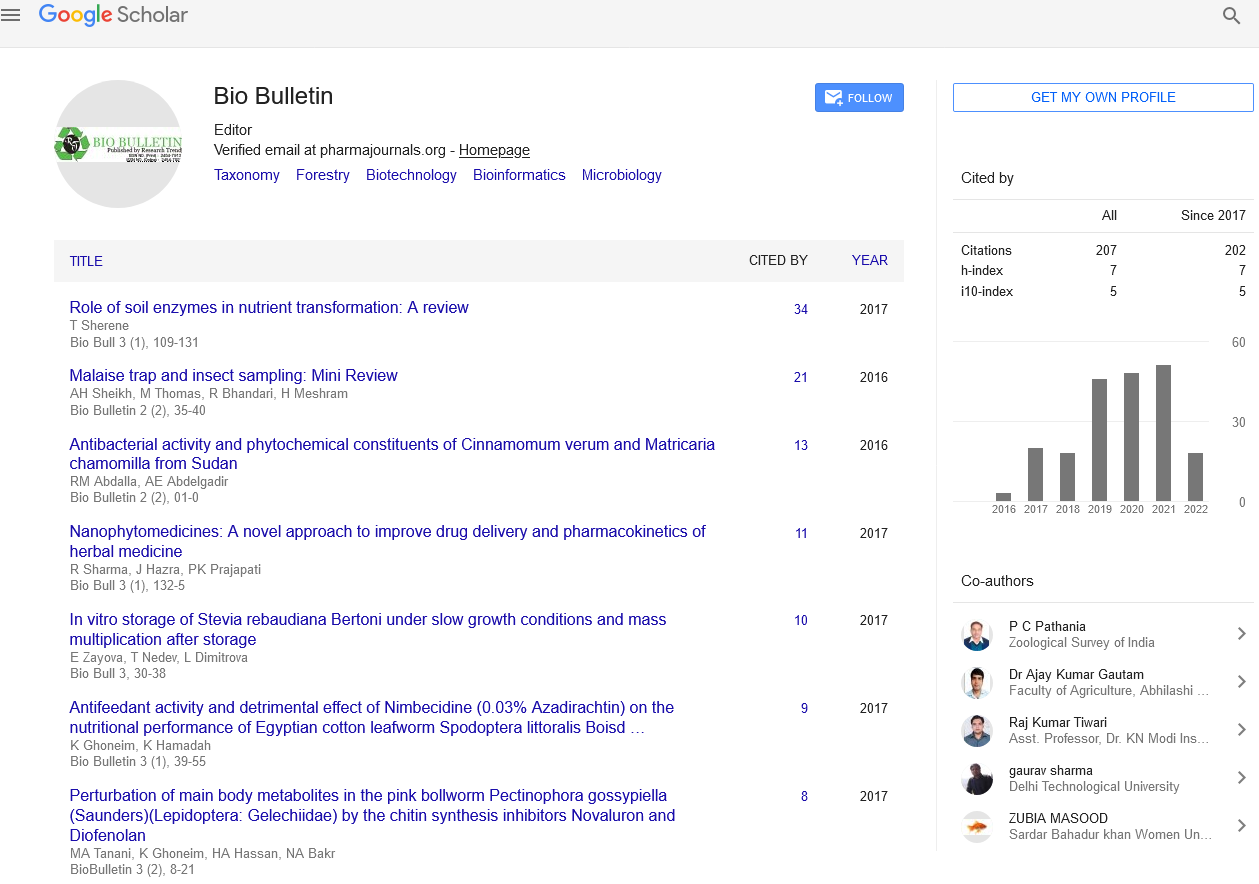Diversity of Medicinal Plants used by Adi Community in and Around Area of D? Ering wildlife Sanctuary, Arunachal Pradesh, India
Abstract
Author(s): K. Jeyaprakash, Y. J. Lego, S. Rathinavel
The present survey was carried out from March 2014 to June 2016 to document the diversity of medicinal plants among the Adi community in four settlements which are located nearby area of Daying Ering Memorial Wild Life Sanctuary, Arunachal Pradesh, North East India. The information was obtained through open and face-to-face interviews with the local knowledgeable people. A total of 73 plant species belonging to 66 genera and 44 families were documented in the study. The dominant family in the survey was Asteraceae (eight species) followed by Euphorbiaceae (seven species). Of the collected ethno medicinal plants, 46% herbs followed by 36% shrubs, 11% trees and 7% climbers. Among the different plant parts used for the preparation of medicine, leaves were mostly used and predominantly used herbal preparations were taking raw materials directly followed by decoction. The herbal medicines to treat variety of ailments such as to heal cuts and wounds (eight species), jaundice (six species), bone fracture and gastritis (six species each), blood pressure, and ring worm (four species each), diarrhoea, headache, snake bite and toothache (three species each), anaemia, antidote, asthma, diabetes, expel worms, gynaecological problems, loose motion, malaria, sinusitis, skin disease and stomach problems (two species each) and other diseases containing one species each were recorded. The plants like Alstonia scholaris, Diplazium esculentum, and Hydrocotyle sibthorpioides should be given priority in conservation point of view, since these plants eroding rapidly in study area due to over-exploitation. The usage of plants by the Adi community reflects their interest in herbal medicine and further investigation on these species may lead to the discovery of novel bioactive molecules.
https://maviyolculuk.online/
https://mavitur.online/
https://marmaristeknekirala.com.tr
https://tekneturumarmaris.com.tr
https://bodrumteknekirala.com.tr
https://gocekteknekirala.com.tr
https://fethiyeteknekirala.com.tr
Share this article

Google Scholar citation report
Citations : 320
Bio Bulletin received 320 citations as per Google Scholar report
